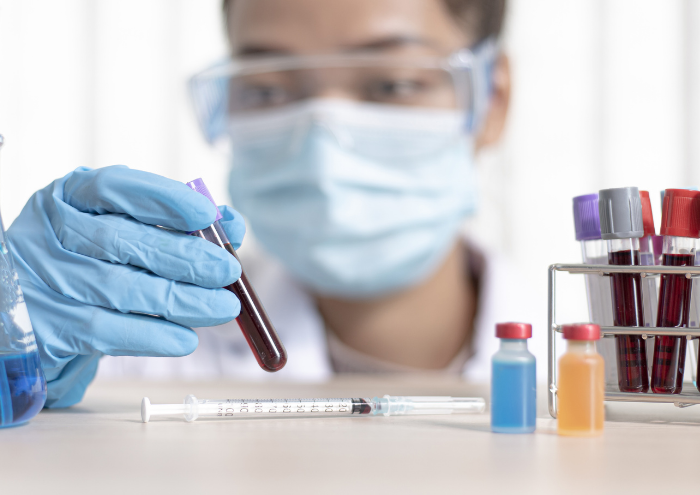The COVID-19 pandemic - an unprecedented crisis
The COVID-19 pandemic was the biggest crisis our community has ever faced, and has been an important part of all our work during 2020/21.
As the year started, 230,000 people with blood cancer in the UK were shielding, which meant they were advised not to leave their homes because of fears they may be at particularly high risk from COVID-19.
Supporting our community
The first thing that changed was the demand on our support line, as people with blood cancer wanted to know how high their risk was. Many were struggling with the psychological impact of having to stay at home, and in many cases be socially distant even from the people they lived with.
There were points when the number of support enquiries we were getting was seven times higher than normal, and we responded by extending the hours our support line was open to include evenings and weekends.
We were able to cope with this increase in demand by bringing in people from other teams to temporarily work on the support line, and to quickly train volunteers to answer enquiries.

We created a coronavirus section of our website, giving information about government advice and setting out what it meant for people with blood cancer. This section had almost 300,000 page views over the course of the year. We have had lots of feedback that the information has been an enormous help to our community. Many of them have used this information to challenge their healthcare team after being wrongly told they should not be shielding.
It was also clear from early in the crisis that despite their unique needs, people with blood cancer often felt forgotten and did not always get the support they needed. We worked with other charities representing the shielding community, to campaign for supermarkets to give higher priority to vulnerable people for food deliveries, and were pleased when the situation improved.
Then as lockdown eased, we campaigned for workers with blood cancer not to be forced to go back to work if they could not work from home. This work also benefitted the wider group of two million people who were shielding because they had health conditions that put them at higher risk. This included people with other types of cancer, and conditions such as cystic fibrosis and kidney disease. The increased support we campaigned for was given to everyone who was shielding, rather than just people with blood cancer.
We also did a survey of more than 1,000 people with blood cancer that showed over half of them had struggled with their mental health, and we put these concerns to government.
We have funded two researchers, Dr Graham Collins and Dr Claire Palles, to analyse data from people with blood cancer to try to work out whether some people with blood cancer are at higher risk than others. We are expecting them to publish their research in summer 2021.

Vaccines
When the vaccines were approved, we were disappointed by the Government’s decision not to vaccinate younger people with blood cancer until after everyone aged over 70 had been vaccinated. We launched a campaign to change this, and were delighted when in December 2020 the Government announced that people who were clinically extremely vulnerable would be vaccinated alongside 70- to 75-year-olds.
As concern grew that the vaccines may not protect people with blood cancer as much as the general population, we campaigned for the government to prioritise vaccinating the people they live with to help protect them. Our community wrote letters to their MPs and other elected representatives and, after two months of campaigning, the Government finally agreed to prioritise household members of people with compromised immune systems. These campaigning successes have made a real difference to the lives of people with blood cancer, meaning they have been protected from the virus sooner than expected.
We did all this at a time when our offices were unexpectedly shut, and almost all of our research had to pause because our researchers’ laboratories were closed as part of lockdown. Meanwhile, all the fundraising events were suddenly cancelled, leaving a multi-million pound hole in our financial plans.
